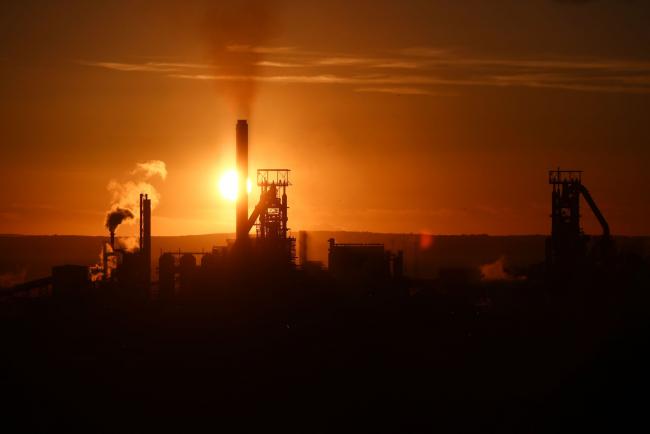(Bloomberg) -- Tata Steel Ltd. plans to axe about 3,000 jobs across its European operations to cut costs in the latest blow to the region’s industry, with the move coming amid a heated general election campaign in the U.K.
About two-thirds of the reductions would be office-based staff, according to a statement. The company -- which has steel-making facilities in the U.K. and the Netherlands, as well as other manufacturing operations -- didn’t give a detailed breakdown of where the job losses would be made.
“Stagnant EU steel demand and global overcapacity have been compounded by trade conflicts, which have turned the European market into a dumping ground for the world’s excess steel capacity,” Tata Steel said.
The European steel industry has faced growing headwinds this year amid declining demand, slowing growth and the consistent threat from supplies from overseas, including exports from Turkey, Russia and China. British Steel Ltd., the U.K.’s No. 2 steelmaker was put into liquidation in May, and has been taken over China’s Jingye Group Co. Apparent steel demand in the European Union will contract 3.1% this year, lobby group Eurofer warned last month.
The steelmaker’s European operations are facing “unprecedented severe market conditions,” Henrik Adam, chief executive officer of Tata Steel in Europe, said in the statement. Other steps to pare costs included boosting sales of higher-value steels, increasing efficiency and cutting procurement costs.
General Election
Voters in the U.K. go to the polls next month in a rare winter general election, and Tata Steel’s move is likely to feature as an issue in the showdown, which has been dominated by the Brexit crisis. In the contest, Conservative Prime Minister Boris Johnson is squaring off againt Labour leader Jeremy Corbyn.
Tata Steel Europe’s Ebitda collapsed 90% to 31 million pounds ($40 million) in the first six months of the current financial year, which started in April, on revenue of 3.25 billion pounds. The program of job cuts and other moves targets positive cash flow by the end of the year to March 2021.
In a measure of the challenge facing local mills, steel production in the EU slumped in August to the lowest since the financial crisis amid a record jump in imports. The bloc’s output dropped to 11.45 million tons that month, according to World Steel Association data. That’s the lowest level since 2009.
ArcelorMittal, the world’s top steelmaker, said this month that European steel consumption will drop by up to 3% this year, the most since 2012. Austrian steelmaker Voestalpine AG has also been lowering its profit outlook as the industry downturn spreads.
(Updates to add location of plants in second paragraph)
